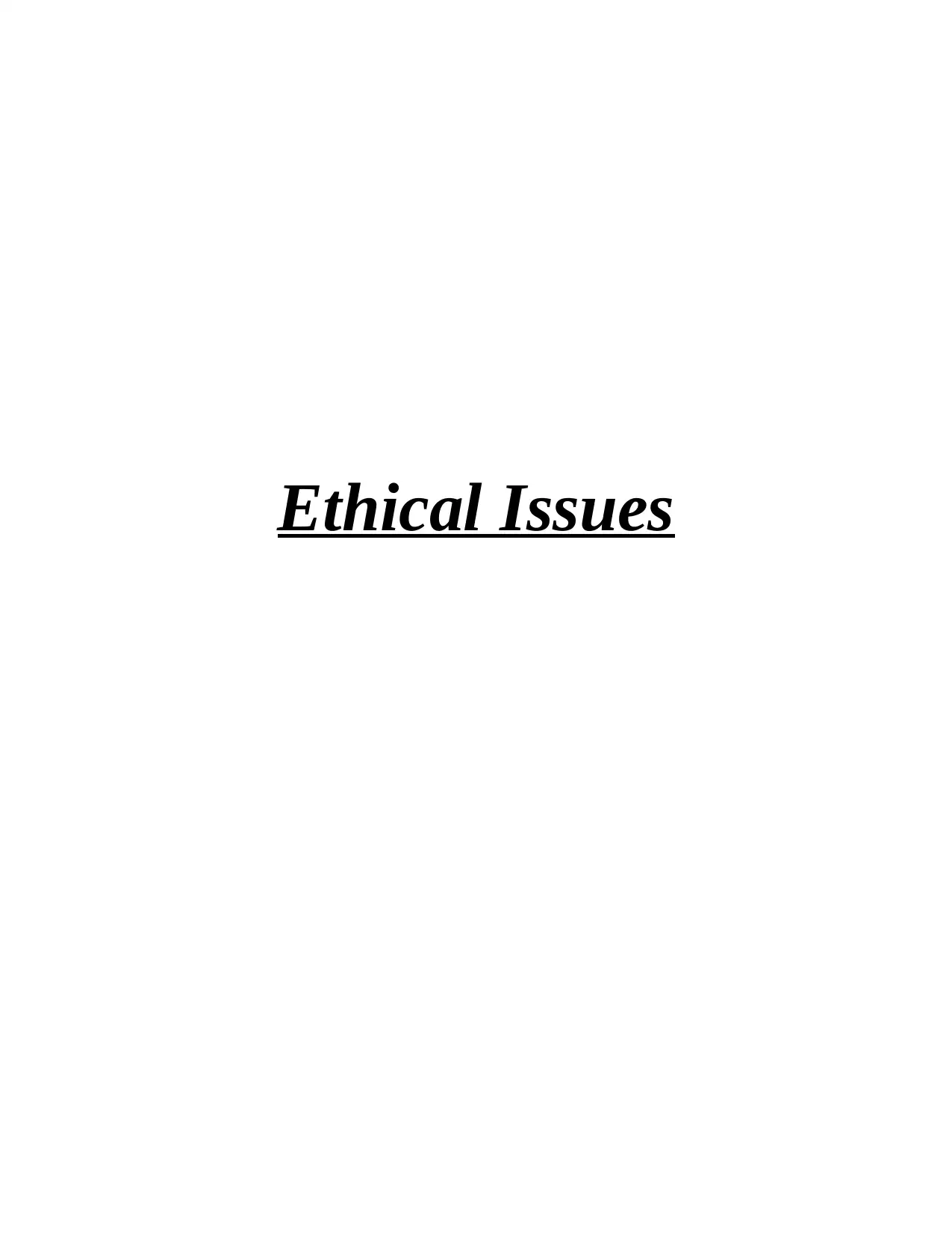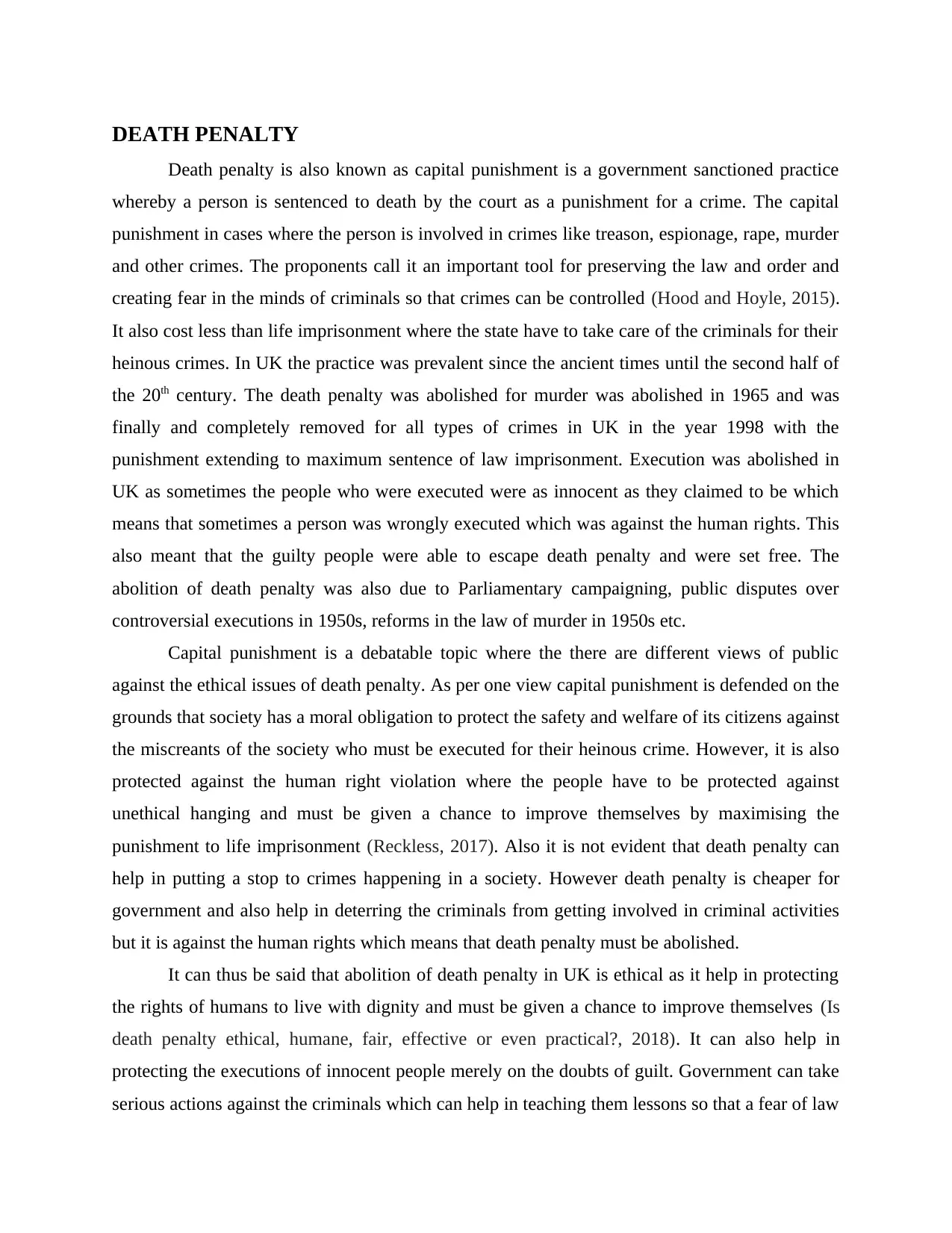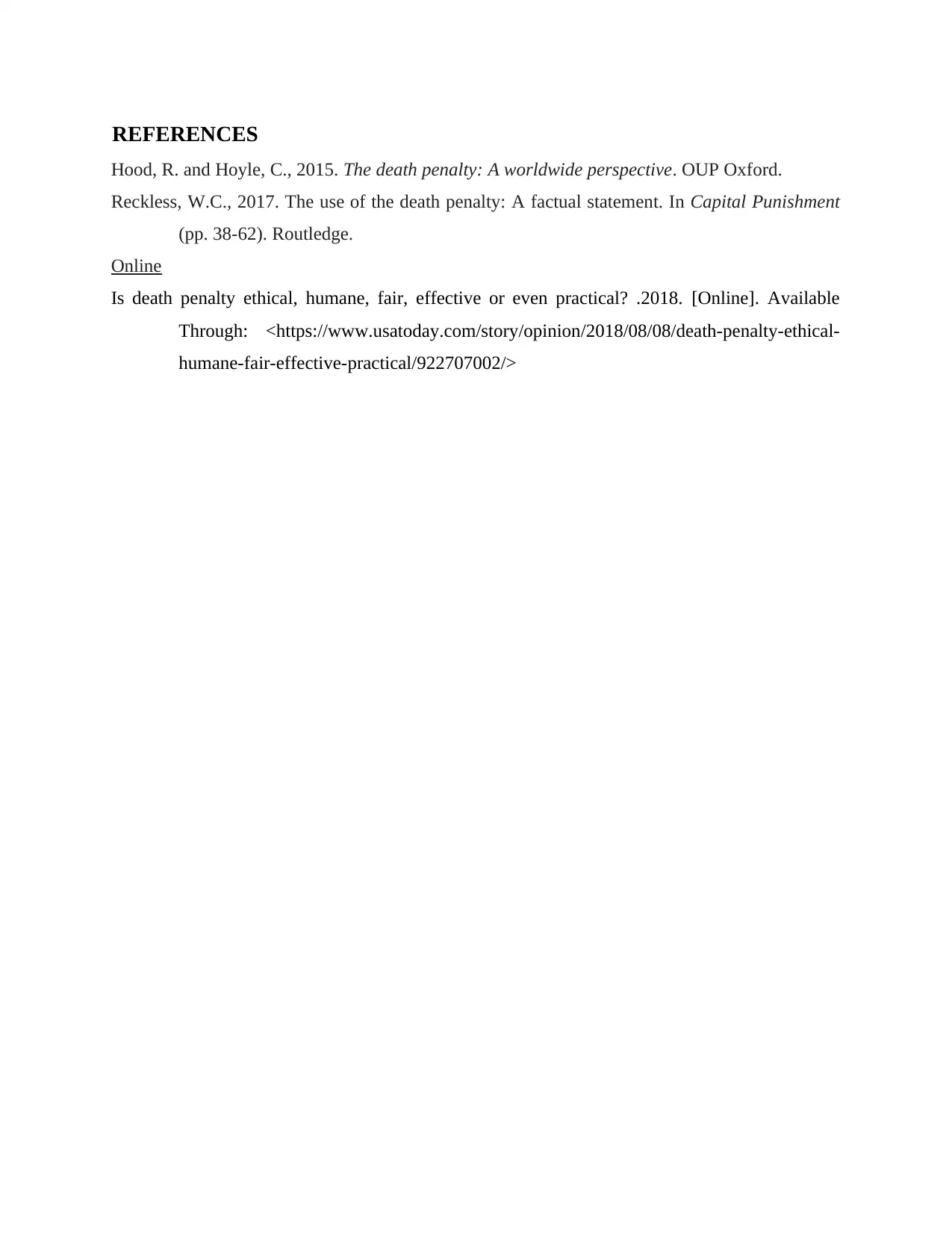A Critical Examination of the Death Penalty's Ethical Dimensions
VerifiedAdded on 2023/01/12
|5
|642
|32
Essay
AI Summary
This essay delves into the ethical complexities surrounding the death penalty. It explores the historical context of capital punishment, particularly in the UK, and examines the arguments for and against its use. The essay discusses the death penalty's role in deterring crime, its cost-effectiveness compared to life imprisonment, and the fundamental human rights issues at stake. It highlights the potential for executing innocent individuals and the ethical considerations of state-sanctioned killing. The analysis includes references to relevant literature and online resources, providing a comprehensive overview of the ethical dimensions of the death penalty and its abolition, concluding that abolishing the death penalty is ethical and protects human rights.
1 out of 5











![[object Object]](/_next/static/media/star-bottom.7253800d.svg)